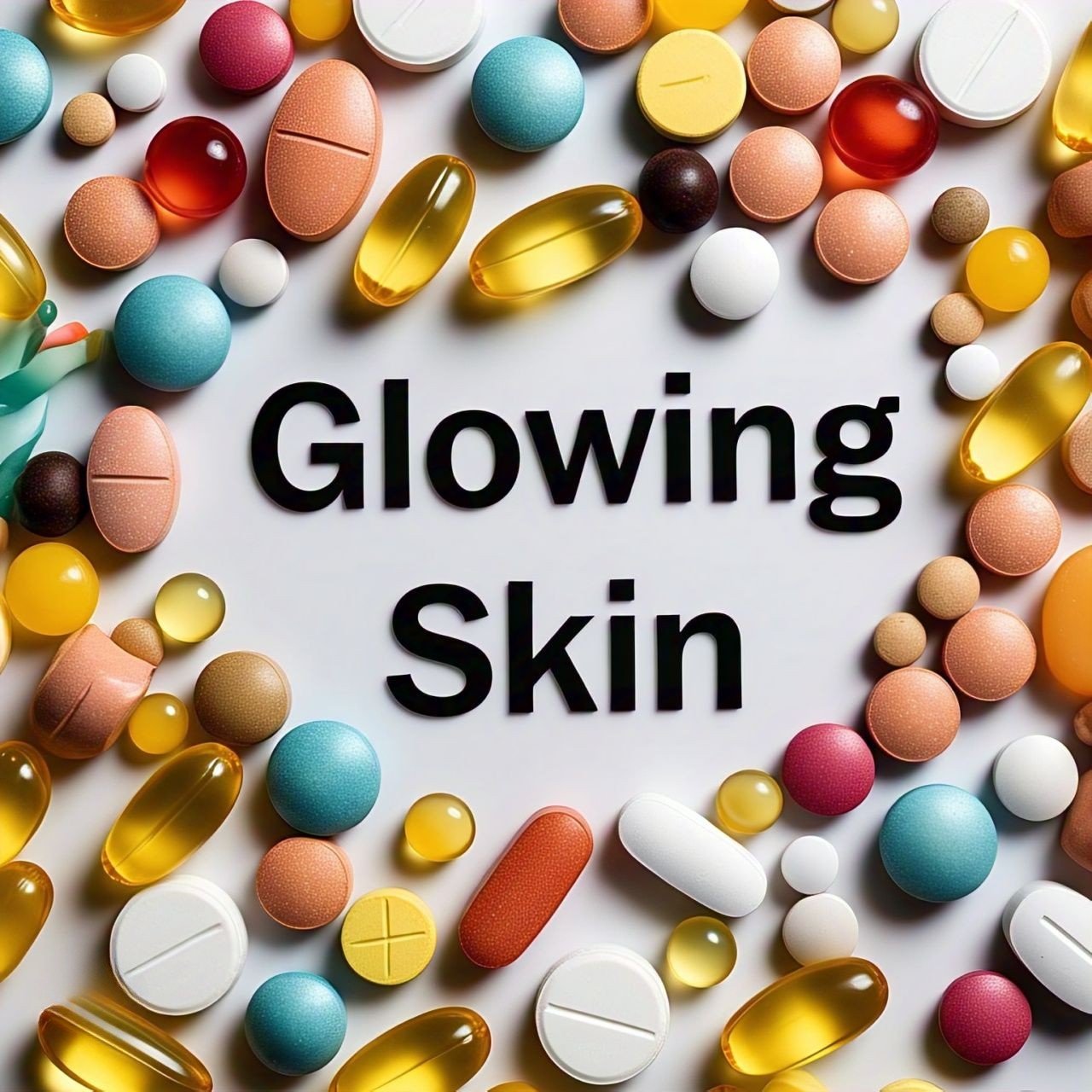Achieving radiant, glowing skin is a goal for many, and while skincare routines play a vital role, what you put inside your body matters just as much as what you apply on your skin. Vitamins are essential nutrients that support various bodily functions, including maintaining healthy, vibrant skin. In this blog, we’ll uncover the best vitamins for glowing skin and how to incorporate them into your lifestyle for long-term benefits.
Why Vitamins Are Essential for Glowing Skin
Vitamins play a crucial role in maintaining the overall health and appearance of your vitamins for glowing skin. They help in repairing skin cells, promoting collagen production, and protecting against environmental damage like pollution and UV rays. On the other hand, vitamins for glowing skin deficiencies can lead to dull, dry, and problematic skin. A well-rounded approach combining proper nutrition, supplements, and topical applications can help you achieve that coveted glow.
Top Vitamins for Glowing Skin
a. Vitamin C
- Benefits: Vitamin C is a powerhouse antioxidant that protects skin cells from free radical damage. It also boosts collagen production, which keeps the skin firm and reduces fine lines and wrinkles. Additionally, it helps to brighten the skin and fade dark spots.
- Sources: Include citrus fruits like oranges and lemons, strawberries, kiwi, and bell peppers in your diet.
- Skincare Products: Look for serums and creams containing ascorbic acid, a potent form of Vitamin C.
b. Vitamin E
- Benefits: Vitamin E is another powerful antioxidant that combats oxidative stress, moisturizes the skin, and protects it from UV damage. It also aids in skin repair and prevents premature aging.
- Sources: Almonds, sunflower seeds, spinach, and avocados are excellent sources of Vitamin E.
- Skincare Products: Many moisturizers and oils are enriched with Vitamin E to provide hydration and protection.
c. Vitamin A
- Benefits: Essential for cell turnover, Vitamin A smoothens skin texture, reduces acne, and improves skin elasticity. Retinoids, a derivative of Vitamin A, are widely used in anti-aging products.
- Sources: Carrots, sweet potatoes, spinach, and eggs are rich in Vitamin A.
- Skincare Products: Retinoids and retinol-based creams are effective in promoting youthful, glowing skin.
d. Vitamin D
- Benefits: Known as the “sunshine vitamin,” Vitamin D supports the skin barrier, reduces inflammation, and aids in the repair process. A deficiency in Vitamin D can lead to dryness and dullness.
- Sources: Sunlight is the best natural source, but you can also consume fortified foods, fish, and supplements.
- Tips for Safe Sun Exposure: Limit direct sun exposure to 10-15 minutes daily without sunscreen to boost Vitamin D levels safely.
e. Vitamin K
- Benefits: Vitamin K helps in reducing dark circles, scars, and stretch marks. It also promotes wound healing and strengthens the skin’s resilience.
- Sources: Green leafy vegetables like kale, broccoli, and green beans are rich in Vitamin K.
How to Incorporate Vitamins into Your Routine
- Balanced Diet: The best way to get these vitamins for glowing skin is through a nutrient-rich diet. Include a variety of fruits, vegetables, nuts, seeds, and proteins to ensure you’re covering all bases.
- Supplements: If you’re unable to meet your daily requirements through food alone, consider taking vitamin supplements. Consult a healthcare professional for guidance on dosages.
- Topical Applications: Skincare products formulated with vitamins for glowing skin (like Vitamin C serums or retinol creams) can directly target specific skin concerns and provide faster results.
Lifestyle Tips for Glowing Skin
- Hydration: Drink at least 8 glasses of water daily to keep your skin hydrated and plump.
- Sleep: Aim for 7-9 hours of quality sleep every night. Restorative sleep allows your skin to repair and regenerate.
- Exercise: Regular physical activity boosts circulation, bringing more oxygen and nutrients to your vitamins for glowing skin for a natural glow.
Conclusion
Vitamins for glowing skin are vital for maintaining healthy, glowing skin. Incorporating Vitamin C, E, A, D, and K into your diet and skincare routine can significantly improve your skin’s texture, tone, and overall health. Remember, consistency is key, whether you’re following a nutrient-rich diet or applying vitamin-infused products. Start your journey to radiant skin today and let your natural beauty shine through!
FAQs
Can I take all these vitamins together?
Yes, but consult your healthcare provider to avoid overdosing or potential interactions.
What’s the best vitamin for acne-prone skin?
Vitamin A (retinoids) is highly effective for reducing acne and improving skin texture.



